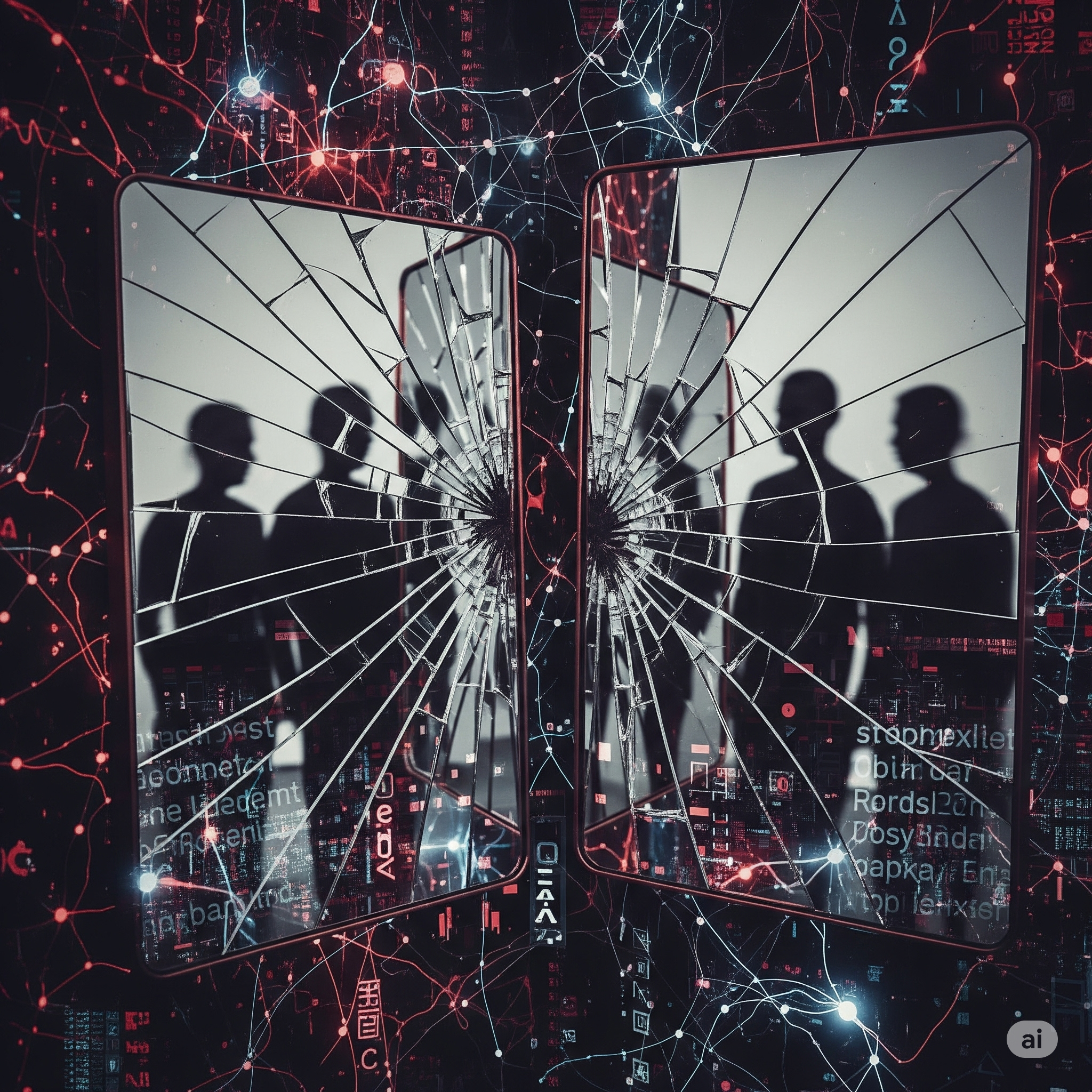
From Isolation to Extremism: Radicalization in the Manosphere
07/22/2025Together with his colleague Linda Coufal, Weizenbaum researcher Lion Wedel recently published two studies on the radicalization of Incels – a group known for its misogynistic views. We spoke to them about their research.
To begin, could you give us an overview of your research? What motivated the two studies, what questions did you set out to answer?
Lion Wedel: Our published work broadly examines the radicalization dynamics within the largest online forum of the incel community. We approached this phenomenon from two distinct angles. In our first paper published in New Media & Society, we explored whether increased platform usage during the initial COVID-19 lockdown correlated with an increase in radicalization cues. Simply put, we asked: did COVID-19 alter radicalization dynamics on the incel forum?
Our second paper, published in Humanities and Social Sciences Communication, adopted a more exploratory perspective, investigating the general communication patterns on the forum and how they might differ between moderate and more extremist incels. Crucially, both papers together contribute to conceptualizing incel extremism as misogynist extremism, acknowledging the significant role that hatred towards women plays in this ideology.
Can you tell us more about the incel community?
Linda Coufal: “Incels” stands for involuntary celibates, and it describes an online community that unites around their inability to find a romantic or sexual partner. The community originated in the 1990s as a support group, initially gender-inclusive. However, over the years, the ideology evolved to exclude women. Now, incels believe that only men can be involuntarily celibate because they perceive women as holding all the power in society, particularly in romantic and sexual relationships.
The incel community is highly relevant for both researchers and policymakers because it’s part of a larger network of misogynistic online communities, collectively known as the “manosphere,” which promotes misogynistic hate. Incels are often considered the most radical within these communities, and it’s the only manosphere community directly linked to terrorism.
To what extent do you think the incel ideology poses a danger to individuals or society?
LC: As I mentioned, incels are the only group within online misogynistic communities that has been linked to terrorism, like Anders Breivik and the attacks in Halle and Hanau. Therefore, the ideology present in these forums can be linked directly to violent radicalization. On the other hand, incels themselves report high rates of suicide and self-harm among their members. This is also attributed to the ideology, as it often has a strong nihilistic dimension, offering members no hope for relief or improvement in their situation.
LW: To add on this – the greatest threat is perhaps also the hardest to quantify: the normalization of gender-based hate positions. Radical viewpoints encouraged within the incel community can spread throughout the broader manosphere network, subtly shifting societal attitudes towards misogyny.
You analyzed communication patterns on an incel forum using social network analysis. What made this method particularly well-suited to your research?
LW: For the incel forum, this method is ideal because the forum’s structure naturally lends itself to meaningful network analysis. Similar to Reddit, the forum is organized into threads (thematic conversations with an initial starting post), along with comments and sub-comments that refer to either a previous comment or the initial post. This structure allows us to derive a network that maps the intensity of user interactions. The more two users referred to each other’s comments, the closer their connection in our network. This makes network analysis an ideal tool for investigating online communication patterns.
LC: Furthermore, network analysis has long been theorized as crucial for radicalization research in face-to-face settings. We’ve taken these real-world network observations and tested them on an online platform, which is precisely where so-called “lone wolves” often radicalize.
Based on your findings, what steps could be taken to better detect or disrupt the development of misogynist extremism in online communities?
LC: Our findings suggest that policies should perhaps focus more on individuals already deeply integrated into these communities. Our study published in New Media & Society showed that sustained loyalty to the community over time was connected to (re-)radicalization during a disruptive societal crisis. Similarly, our study in Humanities and Social Sciences Communication indicated that forum members already part of firm social structures were more likely to show signs of radicalization.
On a more general note, many mainstream online platforms currently lack an incentive to actively combat misogynistic extremist content, and harmful extremist content more broadly. They profit from ad revenues, which require high user engagement. And, as we know for certain, this type of content unfortunately drives engagement.
Thank you!
Linda Coufal is a researcher in the field of political sociology at Charles University Prague.
Lion Wedel is a doctoral researcher at the Weizenbaum Institute, pursuing his PhD within the research group “Digital News Dynamics.”
Interview by Moritz Buchner